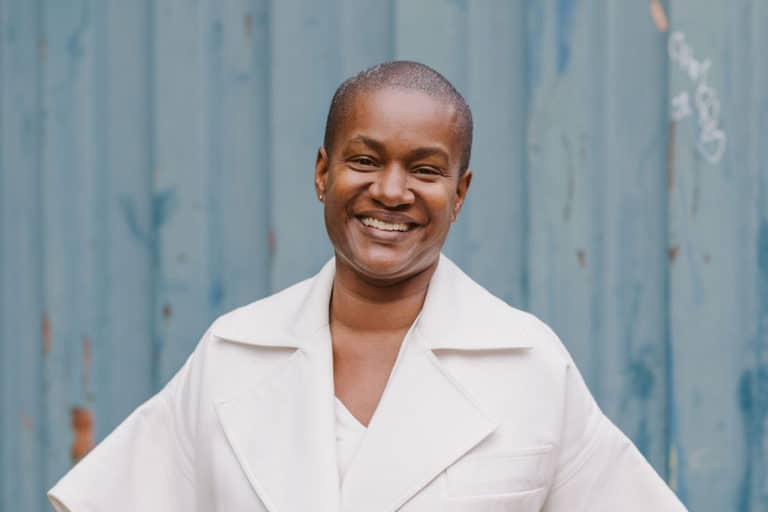
“The Green Party of Canada calls for an immediate de-escalation in the violence and a return to dialogue as a means to seeking a peaceful solution.” That statement landed Annamie Paul, who is Jewish and the leader of Canada’s Green Party, in hot water.
An emergency meeting was held Tuesday night to decide the fate of Paul’s position (Paul is also Canada’s first woman of color in a leadership position in Canadian politics). The meeting was spurred by tensions within the Green Party that surfaced during the most recent conflict between Israel and Hamas in the Gaza Strip.
After Paul issued a statement calling for both sides to cease violence, senior party officials challenged her stance, saying she had not gone far enough to condemn Israel. (Her position was in line with comments made by Prime Minister Justin Trudeau.)
One of Paul’s senior advisors, Noah Zatzman, also Jewish, pushed back and accused multiple Canadian Politicians of antisemitism, including within the Greens.
Now, the party’s federal council is demanding that Paul repudiate Zatzman or possibly face another no-confidence vote.
Efforts to remove her are motivated by “racism” and “sexism,” Paul says
Speaking to reporters on Wednesday, a day after the emergency meeting, Paul said while many of the individuals that sit on the federal council remain committed to a mandate of “transformation and diversity,” others don’t.
The situation has exposed discrimination within the Greens against Paul — who is not only the first Jewish woman to take the head of a federal party in Canada, but also the first Black party leader in Canadian history.
The efforts to remove her were motivated by intentions that were “racist” and “sexist,” she told reporters.
“A small group of councillors sought to force a vote of no-confidence in my leadership. They did so with no substantive consultation with the members they represent. They produced a list of allegations that were so racist, so sexist, that they were immediately disavowed by both our MPs as offensive and inflammatory and contrary to party ethics,” she said.
The process of removing a party leader from office is complex and requires multiple votes.
On Tuesday, the federal council was set to vote on whether to kickstart the process. If 75% of council members agreed at that meeting to let a leadership vote go forward, party members could then vote to remove Paul from office through a motion at an annual general meeting.
However, the vote to kickstart the process did not end up taking place.
“The plan of this small group of councillors, who are on their way out, did not succeed,” Paul said at a press conference.
Thank you to the thousands of people who have reached out to offer their support and encouragement over the past days. This support has come from far and wide and from many unexpected places. I am very grateful for it.
— Annamie Paul (@AnnamiePaul) June 16, 2021
Internal party tensions over Israel-Palestine
Paul has been under internal scrutiny over her position on the latest conflict between Israel and the Gaza Strip for the last month.
In May, Paul released a statement calling for a ceasefire and condemning both Palestinian rocket attacks and excessive Israeli military force.
“The Green Party of Canada calls for an immediate de-escalation in the violence and a return to dialogue as a means to seeking a peaceful solution,” the statement said.
This appeared to be a moderate position close to that of Prime Minister Trudeau’s government.
Former Green Member of Parliament Jenica Atwin openly criticized Paul’s call for de-escalation in a tweet: “It is a totally inadequate statement,” Atwin wrote. “Forced evictions must end. I stand with Palestine and condemn the unthinkable airstrikes in Gaza. End Apartheid.”
Atwin left the Green caucus to join the Liberals last Thursday. Her departure, combined with other disputes regarding the Israeli-Palestinian conflict, caused the internal stir within the Green party.
Pressures to disavow former advisor over accusations of antisemitism within the Green Party
Last month, Paul’s former senior adviser, Noah Zatzman, accused multiple politicians — including unspecified Green MPs — of discrimination and antisemitism in a Facebook post.
Now, sources told the CBC that the Green Party’s federal council has adopted a separate motion asking Paul to publicly repudiate Zatzman.
The motion also calls for Paul to “explicitly support” the Green Party caucus. If not, the motion says, Paul would face a vote of non-confidence on July 20.
The escalating tensions over the past month have resulted in a barrage of antisemitic harassment against Paul as well as himself, Zatzman said in an interview with the Canadian Press.
I accept that seeking a public role comes with increased scrutiny.
— Annamie Paul (@AnnamiePaul) August 20, 2020
However, since it became known I am Jewish, I've been bombarded with questions on Israel, BDS, annexation & accused of taking bribes & dual loyalty.
Despite my public statements, questions persist. Why?#cdnpoli
During the leadership race, Paul was the target of antisemitism from Green party members and supporters.
“Most of the attacks, most of the online hate that I’ve received has really been targeted at my Jewish identity,” she said in an interview last fall. “As a Jewish person and as a Black woman, that kind of prejudice isn’t surprising.”
“But I will say that the level of vitriol, the persistence of the attacks and the fact that it often goes unchecked, that there’s a lot of silence around it, and that people feel quite comfortable expressing these opinions in very public forums … even for someone who has experienced this as a lived experience… It still takes you back, you never really quite get used to it”
Paul said she is very troubled by the recent, intense resurgence of antisemitism.
“There are differences of opinion that come up naturally within parties. And certainly, Israel and Palestine is one that has demonstrated the differences of opinion,” Paul told reporters Monday in response to questions about whether there is antisemitism in her party.
“As only the second Jewish person to lead a federal party with seats, I will say that antisemitism has no place in politics.”
Paul’s Jewish identity
Paul is a lawyer who lives in Toronto with her husband and two sons. She is the daughter of Caribbean immigrants and grew up in a Toronto Jewish neighborhood.
Today is the start of #Passover, Festival of Freedom. As my family prepares to celebrate virtually, this year's Passover serves as a reminder that the world has overcome plagues before and will again. In a time of COVID-19, it is a very comforting thought.
— Annamie Paul (@AnnamiePaul) March 27, 2021
Chag Pesach Sameach! pic.twitter.com/JqQAwKV8U9
In an interview, she said she has always felt something of an affinity for Judaism.
“It was a space and a culture and civilization that I became familiar with at a relatively early age,” she said. “The value that was placed on human life, the recognition of our interconnectedness, those were things that really attracted me… When I think about it in terms of my life and how I live my life, it’s very attuned and aligned.”
While studying law at the University of Ottawa, she met her husband, Mark Freeman, now a human rights lawyer.
“It was very clear to both of us that we wanted to have a Jewish life and raise a Jewish family,” Paul said. “It was something that I knew I would do at some point.”
She converted to Judaism in 2000 during her time at Princeton University, where she received her master’s in public affairs. Her spiritual guide was Rabbi Jim Diamond, the university’s Hillel director.
This is not the first time Paul has taken hits for being a Jewish person in politics.
“The moment it became known that I was Jewish, I was bombarded with questions about my positions on Israel, the Boycott, Divestment and Sanctions campaign and the proposed annexation of West Bank territories,” Paul wrote in an opinion piece for the Canadian Jewish Record.
“Despite having posted public statements on these matters, questions persist. My loyalty to Canada has also been called into question, and I have been accused of taking bribes from Israel, leading a Zionist takeover of the Green Party of Canada and of spreading hasbarah.”
Nevertheless, Paul shared messages of hope and even humor.
First woman of colour, first Black person and first Jewish woman elected to lead a major federal party – it was never going to be a walk in the park.
— Annamie Paul (@AnnamiePaul) June 16, 2021
“First woman of colour, first Black person and first Jewish woman elected to lead a major federal party – it was never going to be a walk in the park,” she wrote in a Tweet.
Originally Published Jun 17, 2021 02:43PM EDT
